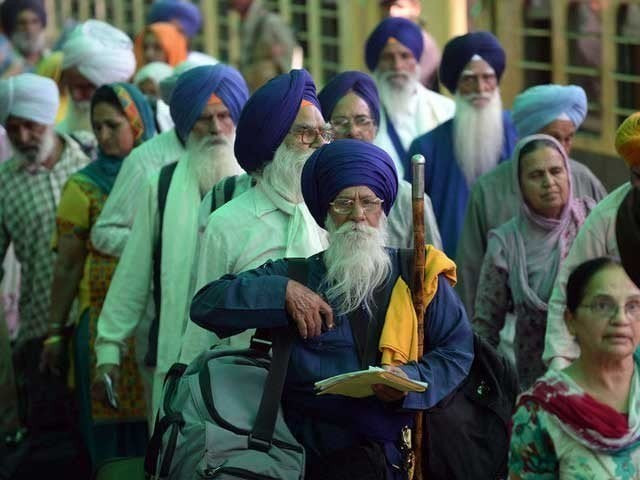Border restrictions deprive Sikh community of traditional headwear
Suspension of religious tourism with India has exacerbated the shortage of fabric used to make turbans

Out of all those who wear a turban, it is the Sikhs who have truly owned it. Commonly known as Dastar or Dumalla, the headwear has become the most discernible symbol of Sikhism.
But due to pandemic-related trade restrictions and suspension of religious tourism Sikhs in Pakistan are unable to acquire the world-famous full voile fabric made and imported from Amritsar, India resulting in an acute turban shortage.
Apart from the turban obligation Sikhs follow the Five Kakars. Kesh, to grow their hair in a natural way, carry a kirpan which is a small sword, wear a kara which is a steel bracelet, keep a kangha which is a wooden comb, and wear kaachera which are undergarment pants. Since there are very few Sikhs in Pakistan, there is a lack of production of these articles of Sikhism.
Textile is Pakistan's largest manufacturing industry, so it indeed could produce alternatives to the 'full voile' fabric. Well, it turns out that cotton and velvet turbans are not comfortable enough. Furthermore, not only is full voile easy to tie into layers, it neither has slits and nor does it loosen quickly; hence the default option is importing the fabric from India.
Read More: Landmark move : Sikh Marriage Act all set for Punjab cabinet’s nod
An exasperated Governor Punjab's Coordinator, Sardar Pawan Singh Arora, talking to the Express Pawan, remarks, "We cannot even buy turbans online because there is no courier service between Pakistan and India."
In such circumstances, the Pakistan Sikh population has had to rely on religious tourism, friends, and relatives visiting Pakistan to procure turbans and other items. However, the Kartarpur Corridor, the resting place of Sikhism founder Guru Nanak, an alternate avenue for acquiring religious items of Sikhs has been shut for over a year in efforts to curb the virus. Appeals from Sikhs across the border to end the prolonged closure at the Indian side have gone unheard as its government battles with a rising Covid death rate.
Sardar Bishan Singh from Lahore, associated with the textile business, said that the Dastar they are using now were either part of the last batch that arrived from India or subsequently arranged through friends. According to Bishan Singh, apart from the religious headwear, famous Indian sarees and lehengas have been equally hard to source since the border closed.
Talking to the Express, Bishan Singh said, "We are trying to produce essential items for the Sikhs locally so that they do not face such problems in the future."
A variety in turban colors also plays a vital role in acquisition from India as the colors found there are considered attractive. Prof. Kalyan Singh Kalyan highlighting the need for a vast color palette says, "Sikh youth and men wear matching turbans with shirts, but blue, saffron and black turbans are worn on special festivals. Sikhs in Pakistan wear green turbans on national holidays."
Local Sikh leader Sardar Amir Singh, called attention to the fact that new turbans are essential, especially since they are worn at weddings and celebrations. "Since swords and bracelets are made of metal, they last longer, but turbans have to be replaced within six months to a year," he told the Express Tribune.



















COMMENTS
Comments are moderated and generally will be posted if they are on-topic and not abusive.
For more information, please see our Comments FAQ